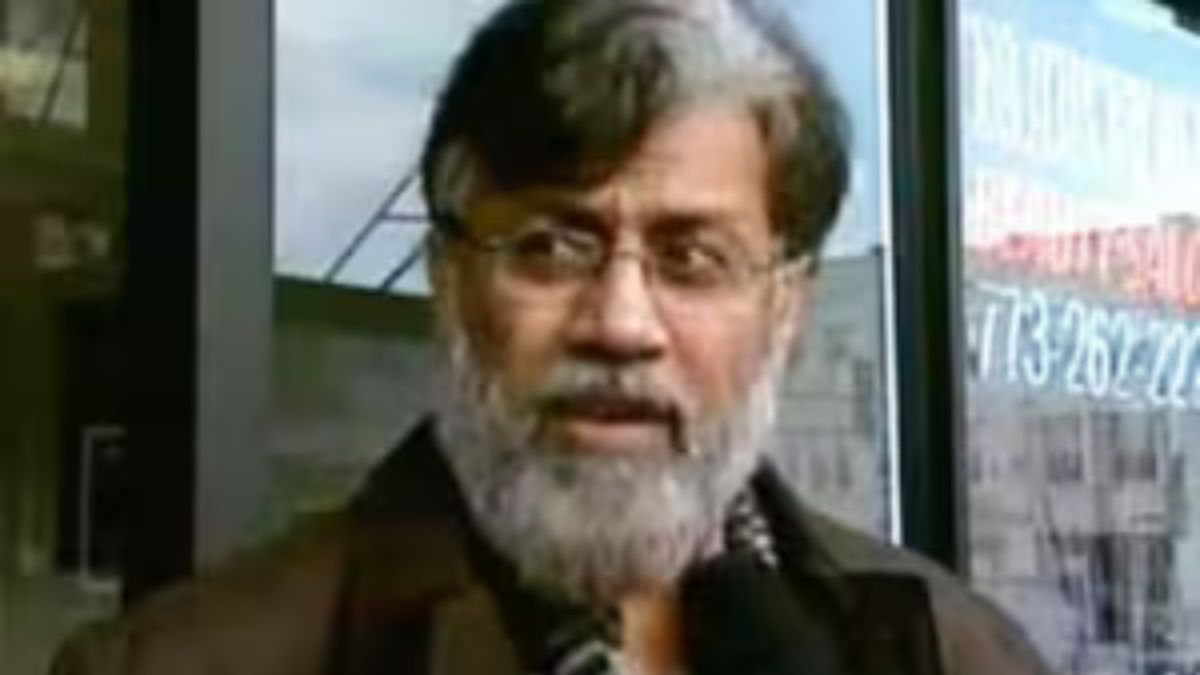) |
|
The United States Supreme Court's decision to approve the extradition of Tahawwur Rana to India marks a significant turning point in the pursuit of justice for the victims of the 2008 Mumbai terror attacks. Rana, a Pakistani-Canadian national, has been implicated in aiding and abetting the attacks, which resulted in the deaths of 166 people, including six American citizens. This decision concludes a protracted legal battle that spanned years, involving multiple appeals and legal challenges by Rana's defense team. The extradition itself signifies a strong commitment from the US to collaborate with India in combating international terrorism and holding perpetrators accountable for their actions. The implications of this decision extend beyond the specific case of Rana, setting a precedent for future extradition requests involving cross-border terrorism and highlighting the importance of international cooperation in addressing this global threat.
Tahawwur Rana's alleged involvement in the 26/11 attacks centers around his association with David Headley, a Pakistani-American operative of Lashkar-e-Taiba (LeT). Prosecutors allege that Rana, through his immigration consultancy firm, provided cover for Headley's reconnaissance missions in India prior to the attacks. Headley's testimony, given his cooperation with US authorities, forms a crucial component of the prosecution's case. The evidence suggests that Rana knowingly facilitated Headley's activities, providing him with the necessary resources and cover to gather intelligence crucial for the planning and execution of the attacks. Beyond his alleged involvement in 26/11, Rana is also implicated in other terror plots, including plans to target the National Defence College in Delhi, the Chabad House in Mumbai, and the Danish newspaper Jyllands-Posten. The breadth of these accusations underscores the gravity of his alleged actions and the potential implications of his upcoming trial in India.
The extradition process itself has been a complex legal undertaking. India formally requested Rana's extradition in 2019, triggering a series of legal challenges. While Rana was convicted in the US in 2011 on charges related to providing material support to LeT and conspiring to attack the Danish newspaper, he was acquitted on charges directly related to the 26/11 attacks. This acquittal, however, did not preclude his extradition, as the US and Indian governments collaborated under the existing extradition treaty to bring him to face trial in India. The Supreme Court's denial of Rana's final appeal effectively ended his legal recourse to avoid extradition. The decision has been hailed as a significant victory for India in its fight against terrorism and underscores the importance of international cooperation in addressing cross-border criminal activity. The precedent set by this case could influence future extradition efforts related to terrorism, strengthening global counter-terrorism initiatives.
Upon his arrival in India, Rana will face trial under various provisions of the Indian Penal Code, including charges of criminal conspiracy, waging war against the Government of India, forgery, and murder. The National Investigation Agency (NIA) has built a substantial case against him, based on witness testimonies (including Headley's), intercepted communications, and financial transactions. The trial is anticipated to be extensive, given the complexity of the charges and the vast amount of evidence to be presented. The prosecution's strategy is likely to focus on establishing Rana's knowledge of and participation in the planning and execution of the 26/11 attacks, relying heavily on the evidence gathered over the years. The outcome of the trial will have significant implications for understanding the operational links between LeT and potentially elements within Pakistan's security establishment, as speculated by some legal experts. The case also highlights the challenge of bringing perpetrators of international terrorism to justice, the importance of international cooperation, and the ongoing struggle against terror networks.
The extradition of Tahawwur Rana represents a significant milestone in the ongoing efforts to bring those responsible for the 2008 Mumbai attacks to account. While Rana's brother maintains his innocence, the weight of evidence against him, particularly Headley's testimony, points towards a different narrative. The US Supreme Court's decision not only delivers a measure of justice to the victims and their families but also reinforces the principles of international cooperation in combating terrorism. The ensuing trial in India will undoubtedly provide further insights into the intricate network behind the attacks and potentially reveal information about potential links between terrorist organizations and state actors. The lengthy legal process and the international implications of this case underscore the complexity of bringing terrorists to justice across national borders. The case serves as a reminder of the enduring impact of terrorism and the importance of sustained global cooperation to counter this threat effectively.
Source: US clears Tahawwur Rana’s extradition to India: What it means for justice in the 26/11 terror case
